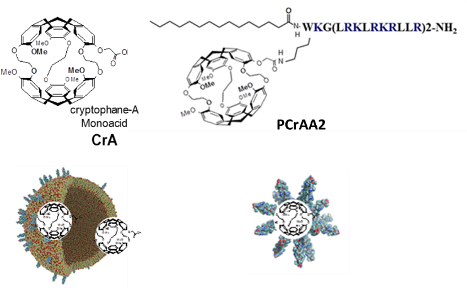
Margitta Dathe
Leibniz-Forschungsinstitut für Molekulare Pharmakologie, Germany
Title: Peptide-modified micelles and liposomes: Carriers for xenon hyper-CEST MRI of blood brain barrier endothelial cells
Biography
Biography: Margitta Dathe
Abstract
Selective imaging of pathological areas and targeted drug delivery are crucial for efficient diagnostics and therapy. Drug delivery to the brain is a particular challenge. We generated highly cationic lipopeptides that form micelles and bind to liposomes. Cargos, covalently bound or incorporated into such carriers are selectively transported into blood brain barrier endothelial cells. Basis for the selective uptake of the different systems is the activation of clathrin-mediated endocytosis, a process which is not addressed in other vessel endothelial cells. Here we present the development of peptide-modified micellar and liposomal carriers for the selective transport of cryptophane-A (CrA) into human brain capillary endothelial cells. Chemical exchange saturation transfer with hyperpolarized xenon nuclei (Hyper-CEST) allows highly sensitive detection of supramolecular cages such as CrA in non-invasive Magnetic Resonance Imaging (MRI). Incorporation into liposomes distinctly reduced the toxicity of the hydrophobic CrA and a one nanomolar concentration generated sufficient contrast to distinguish between brain capillary and aortic endothelial cells. Covalent attachment did not influence the micelle characteristics and provided additional advantages as it results in high local cage concentration and allows more reliable quantification of the signal molecule. The peptide-modified carriers combine a high selectivity for human brain capillary endothelial cells with the great sensitivity of Xe Hyper-CEST MRI and might be a promising MRI tool.
Scheme of peptide-tagged CrA-loaded liposomes and PCrAA2 micelles for Xenon Hyper-CEST MRI


